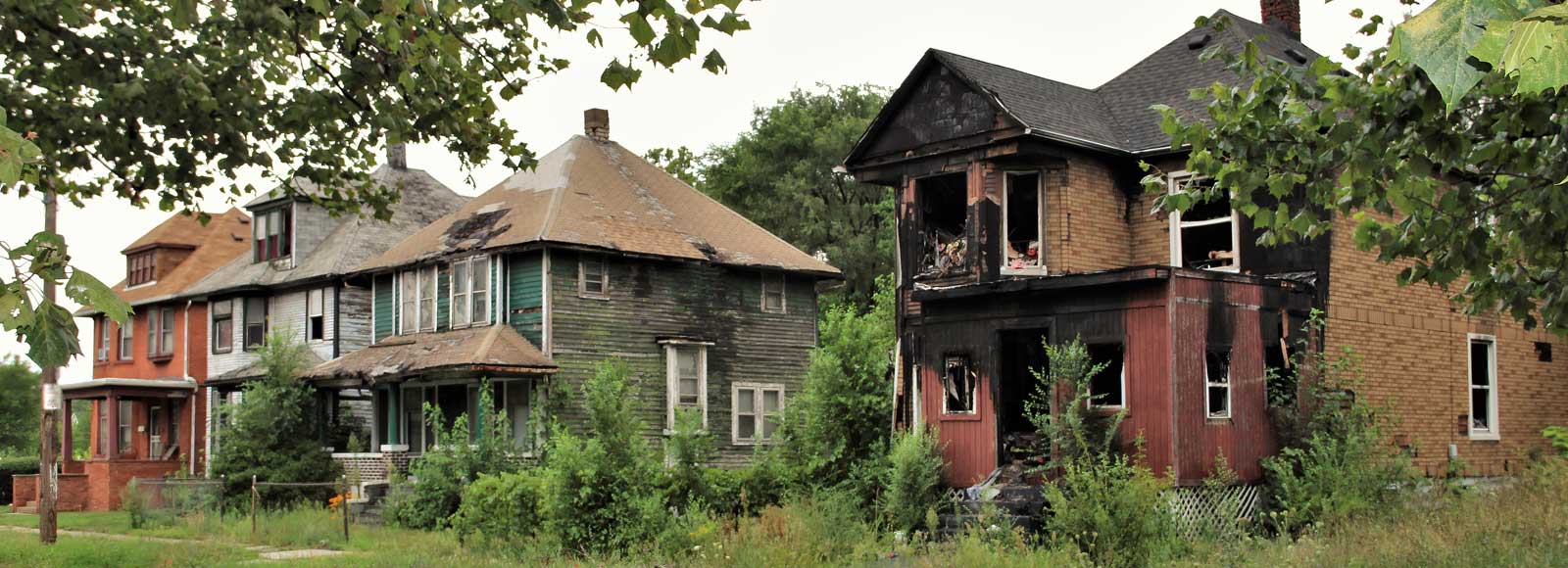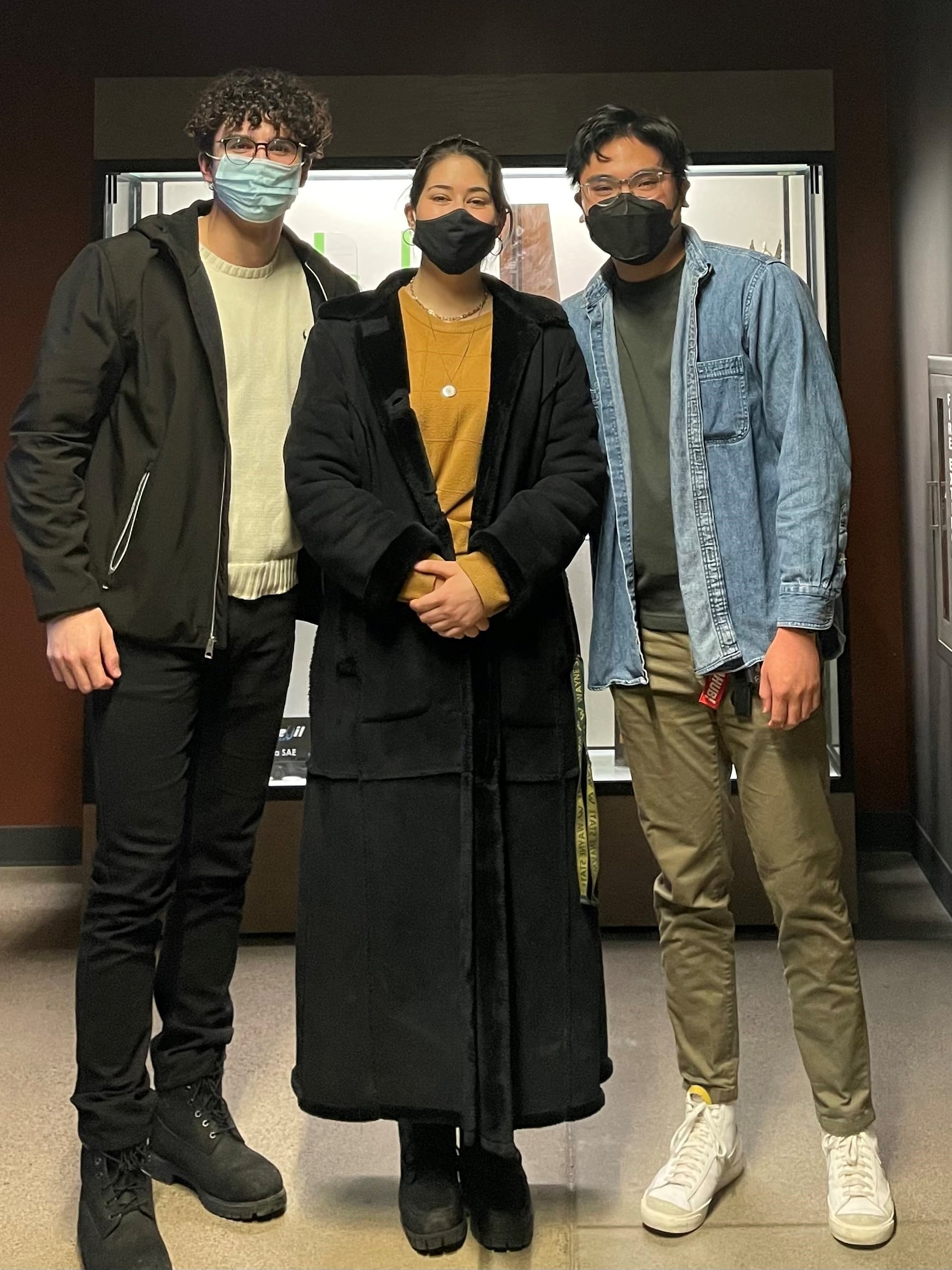Student proposal to deconstruct blighted Detroit houses takes top prize in Wayne State sustainability pitch competition

An interdisciplinary team of students from Wayne State University and the University of Detroit Mercy took first place in a sustainability pitch competition, hosted virtually in early February by WSU and the Fred A. and Barbara M. Erb Family Foundation.
The trio of Knicko Mojica, a junior civil engineering student at Wayne State; Lilly Solomon, a senior studying political science and romance languages at WSU; and Alexander Kalaj, a first-year student at UDM, received a $2,500 prize as well as a MoGo gift card. They were among 50 applicants from the two institutions and Lawrence Technological University chosen to participate.

Their objective during the six-day, hackathon-style event was to develop a pitch that applied sustainable deconstruction methods, rather than demolition, to blighted Detroit homes. The city has taken down more than 20,000 vacant buildings in Detroit neighborhoods since 2014 and is set to either demolish or preserve another 14,000 homes in the near future.
“While it was a stressful week, the whole experience provided an excellent look into the challenges of applying sustainability within our communities,” said Mojica, who also serves as vice president of Wayne State’s American Society of Civil Engineers student chapter.
The students worked with coaches throughout the week and presented their project to a panel of judges from the Michigan Department of Environment, Great Lakes and Energy (EGLE); the UDM School of Law; and local nonprofit Green Living Science.
Central to the proposal was the welfare, safety and social equity for neighborhood residents. The students’ plan endorsed a circular economy in which materials could be donated or sold for the benefit of the community, while other items would be repurposed, recycled or composted. Full transparency and a clear scope of the project would ensure community investment in continuing deconstruction methods.
“I am thankful to have been teamed up with Lilly and Alexander. Our experiences and different backgrounds contributed to a well-rounded group,” said Mojica. “And I want to thank Bill Shuster for encouraging me to participate in the competition. I look forward to applying this experience in my future career to create a sustainable future.”